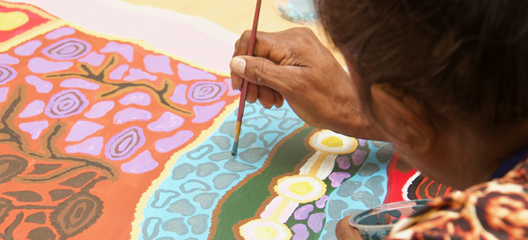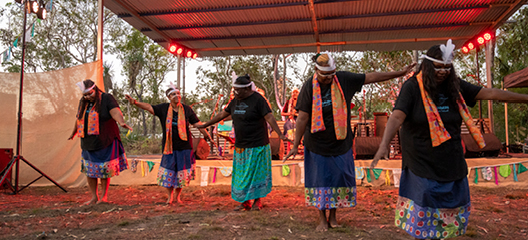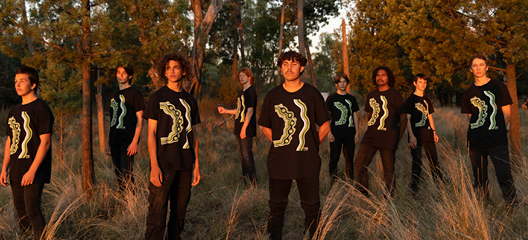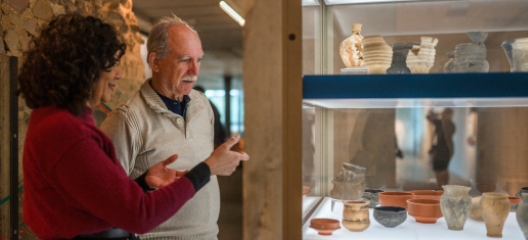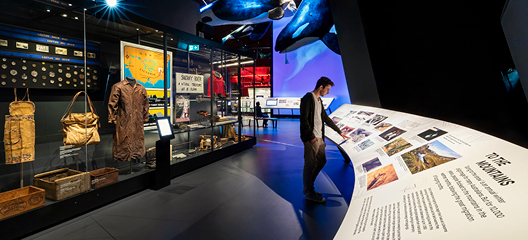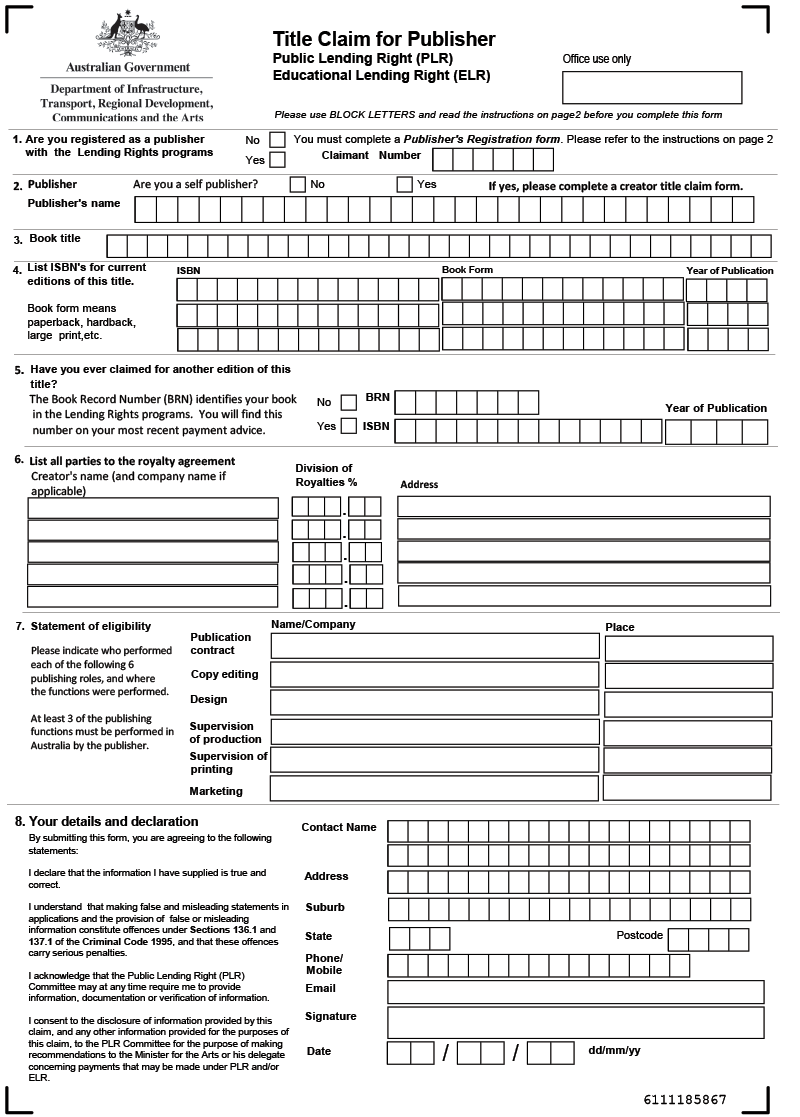- Home
- Who we are
-
What we do
- Cultural heritage
- Regional arts
-
Arts and Disability
- Arts Accessibility
- Arts and Screen Employment Pathways Pilot Program
- Equity: the Arts and Disability Associated Plan
- Implementation Advisory Group for Equity: the Arts and Disability Associated Plan
- Implementation Advisory Group for Equity—Expression of Interest process
- Publications and resources
- Helpful links
- Support at work
- Creative Australia
-
Indigenous arts and languages
- Australian Delegation to the Festival of Pacific Arts 2016
- Australian Government Action Plan for the 2019 International Year of Indigenous Languages
- ILA Program logos
- Indigenous Languages and Arts program
- Indigenous Visual Arts Industry Support program
- International Decade of Indigenous Languages
- National Indigenous Languages Convention
- Review of the Indigenous Art Code
- Stand-alone Indigenous Cultural and Intellectual Property Legislation
- Literature
- Ministerial Intergovernmental Engagement
-
Museums, libraries and galleries
- Alt text for National Cultural Institution Key Performance Indicator Infographics 2021–22—results and trends
- Australian Government International Exhibitions Insurance Program
- Impact of our National Cultural Institutions
- National Cultural Institution KPI Infographics 2020–21—results and trends (including text version)
- Significance 2.0
- The National Collecting Institutions Touring and Outreach program
- National Cultural Policy
- National Indigenous Visual Arts Action Plan 2021–25
- Performing arts
- Screen
- Visual arts
- Have your say
- Funding
- Publications
- News
A review of the Indigenous Art Code is underway to strengthen the protections for Indigenous artists and consumers across the country. This consultation is closed.
Why we want your input
The Indigenous Art Code (the Code) is a document that sets best practice standards for fair, transparent and ethical trade with Aboriginal and Torres Strait Islander artists and their art. The views shared will help Cox Inall Ridgeway to make recommendations about protecting Indigenous artists’ rights, the ethical trade of Indigenous art, and how to strengthen protections.
How you can voice your opinion
The consultation period has ended. If you have any questions about the Review, email IndigenousArtCodeReview@arts.gov.au.
What will be the outcome of this consultation?
Views shared during the consultation phase will inform Cox Inall Ridgeway's recommendations, which will be considered by government in 2025.
The issue
The Indigenous Art Code Ltd administers a voluntary industry Code of Conduct known as 'the Code'. The Code was established by the Australian Government in 2010. It's a set of rules and guidelines that dealers—either Indigenous or non-Indigenous businesses—commit to follow to ensure ethical practices and fair treatment of Indigenous artists.
The Government has committed to review the Code to strengthen the protections for Indigenous artists and consumers across the country. This commitment is outlined in the National Cultural Policy Revive in Pillar 1: 'First Nations First', 'Review the Indigenous Art Code to strengthen the protections for First Nations artists and consumers across the country'.
This is an exciting opportunity to be a part of the first review of the Indigenous Arts Code and support fair and ethical trade of Indigenous artwork and better protections for Indigenous artists.
Relevant documentation
Updates and Milestones
Questions and answers
Outcomes
Participate
Consultation opening date and time: 01/10/2024 09.00
Consultation closing date and time: 29/11/2024 17.00
The consultation period has now ended.
Privacy Collection Notice
Respecting First Nations knowledge and cultural and intellectual property
Cox Inall Ridgeway (CIR) will ensure that the rights of Aboriginal and Torres Strait Islander communities to control their stories and cultural heritage (Indigenous Cultural and Intellectual Property or ICIP) are recognised and respected.
CIR will develop a process for collecting, managing and using knowledge held by Aboriginal and Torres Strait Islander communities that is consistent with best practice Aboriginal and Torres Strait Islander rights, prior to any engagement with Aboriginal and Torres Strait Islander people is undertaken.
CIR will ensure that stakeholders who provide knowledge, stories, cultural heritage information or other sensitive information to CIR for this project do so with free, prior and informed consent.
Image caption: Joy Nabegeyo, Marrawuddi Arts. Photo by Wayne Quilliam © DAAF/Copyright Agency, 2024
Funding programs
Latest news
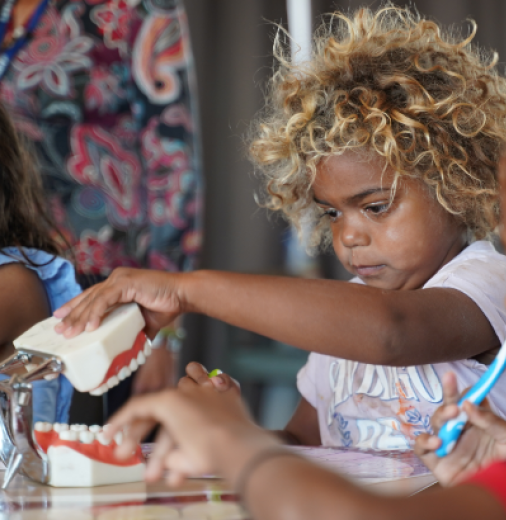
Language is key in delivering healthy teeth practices
A pilot project teaching dental health practices to First Nations children in language has shown to improve oral health speech and literacy.

New research sheds light on creative workplaces
New research has investigated how Australia’s creative workforce and economy can best be supported to thrive and create lifelong careers in the arts sector.
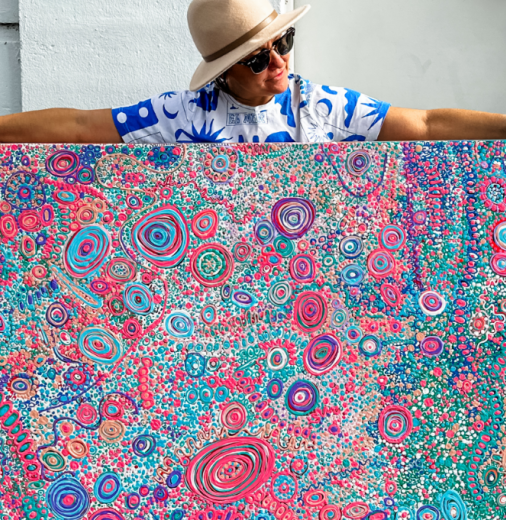
Artist profile: Lauren Rogers on fake art’s cost to culture
Ngarabul and Torres Strait Islander artist Lauren Rogers talks about the inappropriate use of First Nations artwork and its cost to culture.
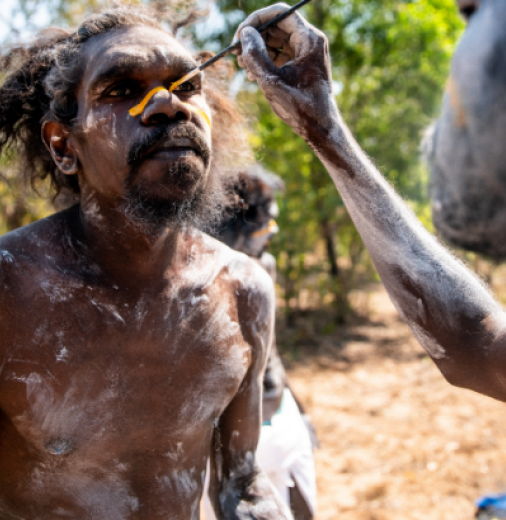
Support for Indigenous languages and arts activities
First Nations community organisations that run language and arts activities will share in $30 million through the Indigenous Languages and Arts (ILA) program.
Have your say
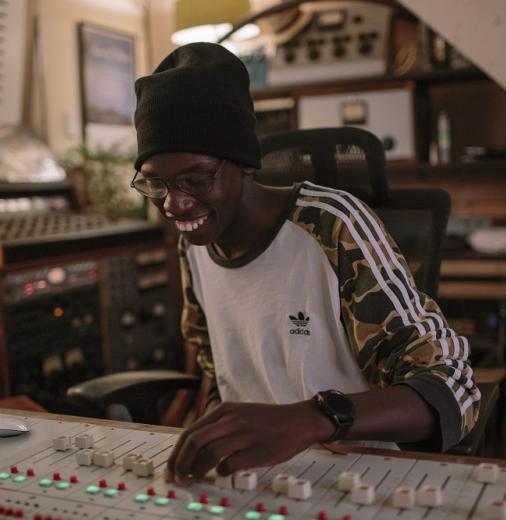
Arts and Screen Employment Pathways Pilot Program
We invited feedback on the development of the new Arts and Screen Employment Pathways Pilot Program to support d/Deaf and disabled artists and arts workers. This consultation is closed.
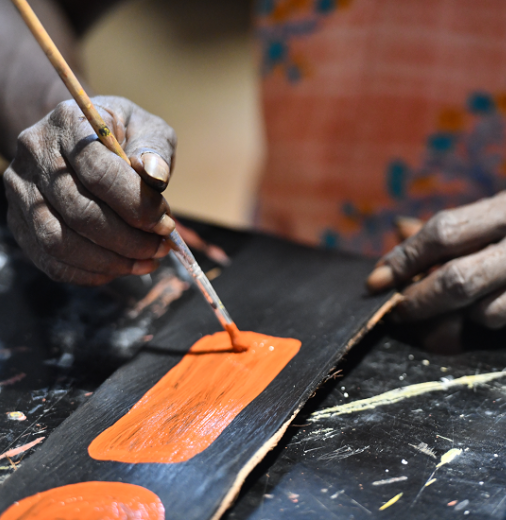
Review of the Indigenous Art Code
A review of the Indigenous Art Code is underway to strengthen the protections for Indigenous artists and consumers across the country. This consultation is closed.
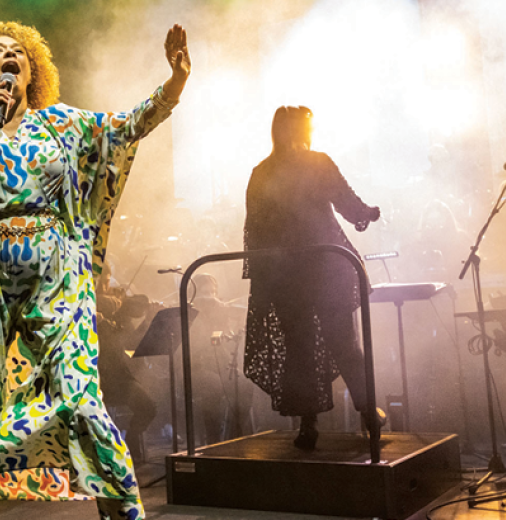
Revive: a place for every story, a story for every place
We developed a national cultural policy for the next 5 years following extensive consultation.

National Opera Review
The Australian Government has released a full response to the recommendations of the National Opera Review final report, which examined the artistic vibrancy, financial viability and accessibility of Australia’s major opera companies.
Latest consultations

Review of the Indigenous Art Code
A review of the Indigenous Art Code is underway to strengthen the protections for Indigenous artists and consumers across the country. This consultation is closed.
Funding programs
What's new

The power of stories
Australian author and journalist Trent Dalton chats all things books, life and lending rights.

Interim report shows resilience of cultural and creative workforce
Research shows strong growth for sector from 2008–09 to 2023–24.

Visions of Australia getting shows on the road
Seven organisations will share in up to $1.3 million in program funding.

Boost for arts projects in regional and remote Australia
A total of 77 arts projects will share in over $1.7 million thanks to the latest round of Regional Arts Fund Project Grants.
Support programs
Displaying 21 - 30 of 238

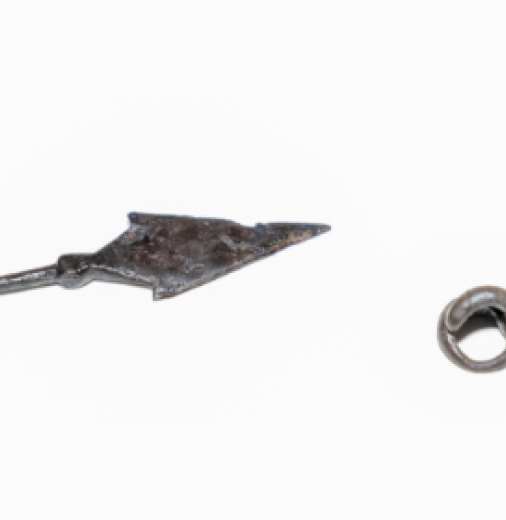
Ukrainian cultural objects returned home
Two archaeological objects have been returned to the Government of Ukraine.
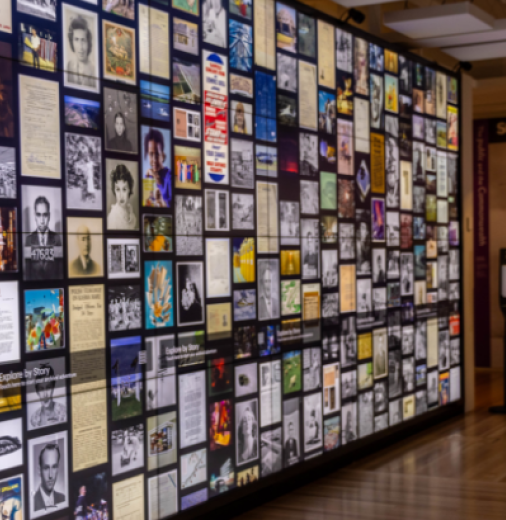
Celebrating the impact of our National Cultural Institutions
The latest findings about the trends and impact of Australia’s National Cultural Institutions have been released.
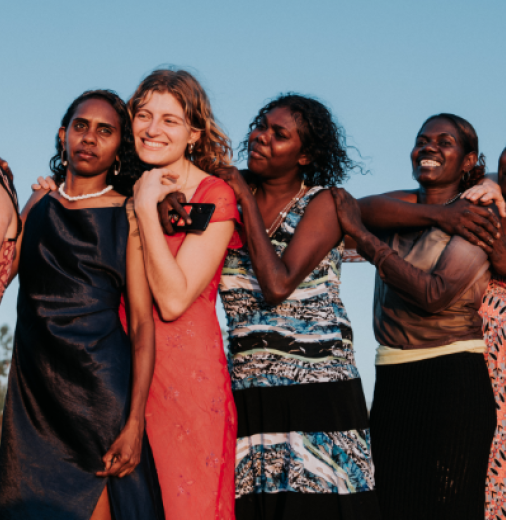
Regional arts projects to receive funding boost
Forty-four new arts projects will share in over $1 million thanks to the Regional Arts Fund.
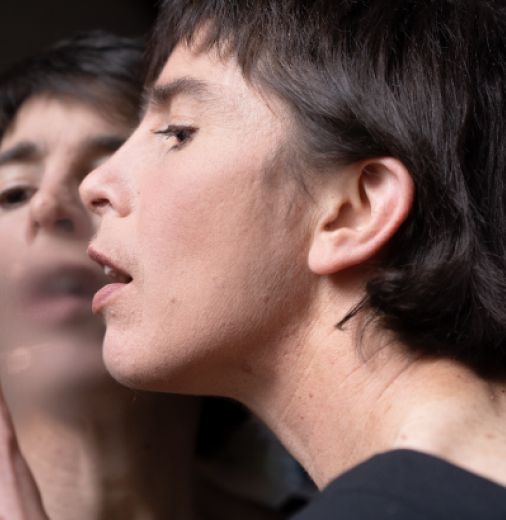
Have your say on the Arts and Screen Employment Pathways Pilot Program
Help shape the design of a new employment program to support d/Deaf and disabled artists and arts workers.
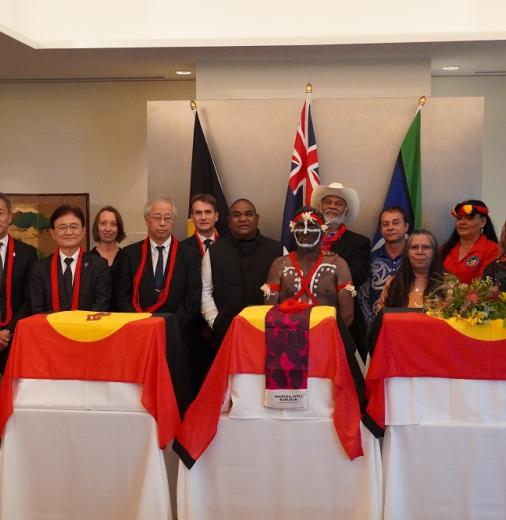
10 First Nations Ancestors returned from Japan in a world-first
A handover ceremony was held at the Australian Embassy in Tokyo to mark the first return from Japan.
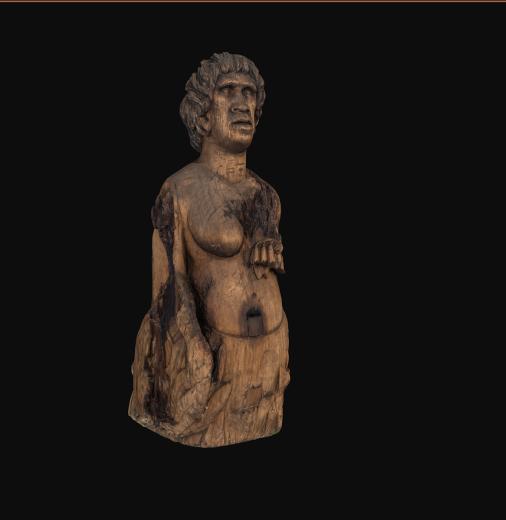
Rare 19th Century ship figurehead of a First Nations woman, Australian National Maritime Museum
The Australian National Maritime Museum (the Museum) has acquired a rare 19th century ship's figurehead of a First Nations woman thanks to support from the National Cultural Heritage Account.

Festivals Australia program bringing together past, present and future
Over $700,000 will be shared amongst successful projects through round 20.

Australia set to light up the 2025 Eurovision stage
The latest recipients of the International Cultural Diplomacy Arts Fund will bring Australian art to the world.
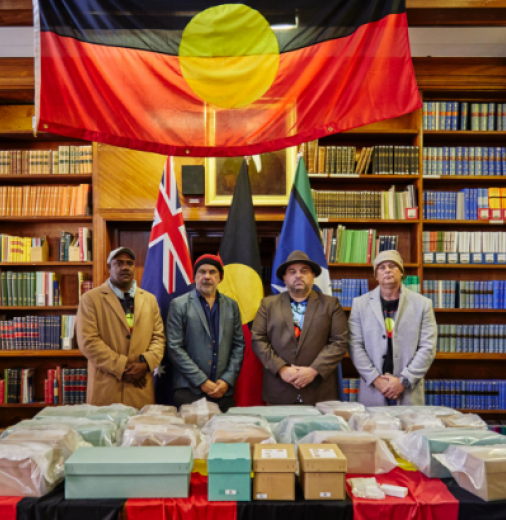
Media release – 36 First Nations Ancestors welcomed home from the United Kingdom
We have welcomed the return of 36 First Nations ancestors from the United Kingdom in a ceremony hosted by the Natural History Museum in London.
Support programs
Funding programs
No results found.
Displaying 25 - 36 of 360
Support programs
Sign up
Sign up for news and updates from our agency.
Sign up to ART/works
Displaying 21 - 30 of 819
Australian Government response to the House of Representatives Standing Committee on Indigenous Affairs—Report on the impact of inauthentic art and craft in the style of First Nations peoples
Published: 11 Sep 2020 Aboriginal and Torres Strait Islander cultures are diverse and dynamic. They are essential to the wellbeing and identity of Aboriginal and Torres Strait Islander peoples, as well as being a vital part of Australia’s identity. …
PublicationPublic Lending Right Committee Annual report 2012-13 Public Lending Right Committee Annual report 2012-13
Published: 1 Dec 2016 Public Lending Right Committee Annual report 2012-13 (DOCX, 493.77 KB) Public Lending Right Committee Annual report 2012-13 (PDF, 1 MB) … 267 … 268 … 13 … Public Lending Right Committee Annual report 2012-13 Public Lending Right …
PublicationPost, Digital and Visual Effects (PDV) offset glossary
Published: 4 Apr 2025 This Glossary is a combination of terminology and a general description of what is, and is not, considered qualifying Australian Production Expenditure (QAPE) for the Post, Digital and Visual Effects (PDV) Offset. Post, Digital and …
Publication2019–2020 funding recipients—Indigenous Visual Arts Industry Support (IVAIS) Program
Published: 26 Aug 2020 2019—2020 funding recipients for the Indigenous Visual Arts Industry Support (IVAIS) Program. indigenous-visual-arts-industry-support-ivais-program-2019-20-funding.docx (DOCX, 165.13 KB) …
PublicationNational Indigenous Languages Report document
Published: 16 Aug 2020 The National Indigenous Languages Report is a key element of the Australian Government’s ongoing commitment to maintain, preserve and celebrate Aboriginal and Torres Strait Islander languages. The entire report in PDF format is very …
PublicationAustralian International Co-Production Program guidelines
Published: 7 Sep 2016 Guidelines for entering into audiovisual co-production arrangements. The Government’s guidelines are used to assess the feasibility of audiovisual co-production arrangements with potential partner countries. …
PublicationCommunity grants—national recipients list, round 1, 2020
Published: 9 Jul 2020 Community grants—national recipients list, round 1, 2020—July 2020. community-grants-national-recipients-list-round1-2020.docx (DOCX, 118.58 KB) community-grants-national-recipients-list-round1-2020.pdf (PDF, 409.2 KB) … 286 … 287 … …
PublicationFestivals Australia grant recipients—National summary of projects—Round 10 February 2020
Published: 6 Jul 2020 List of national summary of projects for Round 10, February 2020. national-summary-of-projects-round10-february2020.docx (DOCX, 164.2 KB) national-summary-of-projects-round10-february2020.pdf (PDF, 283.35 KB) … 291 … 292 … 293 … 3 … …
PublicationNational Regional Arts Fellowships 2020: Recipients List
Published: 16 Jun 2020 Recipients list for 2020 National Regional Arts Fellowships. national-regional-arts-fellowships-2020-recipients-list.docx (DOCX, 148.71 KB) national-regional-arts-fellowships-2020-recipients-list.pdf (PDF, 210.38 KB) … 294 … 295 … …
PublicationFestivals Australia March 2016 Round - Grant Recipients
Published: 14 Jul 2017 National summary of Festivals Australia projects grant recipients for March round 2016. National summary of Festivals Australia projects grant recipients for March round 2016..docx (DOCX, 788.08 KB) National summary of Festivals …
PublicationFunding and support program archive
No results found.



